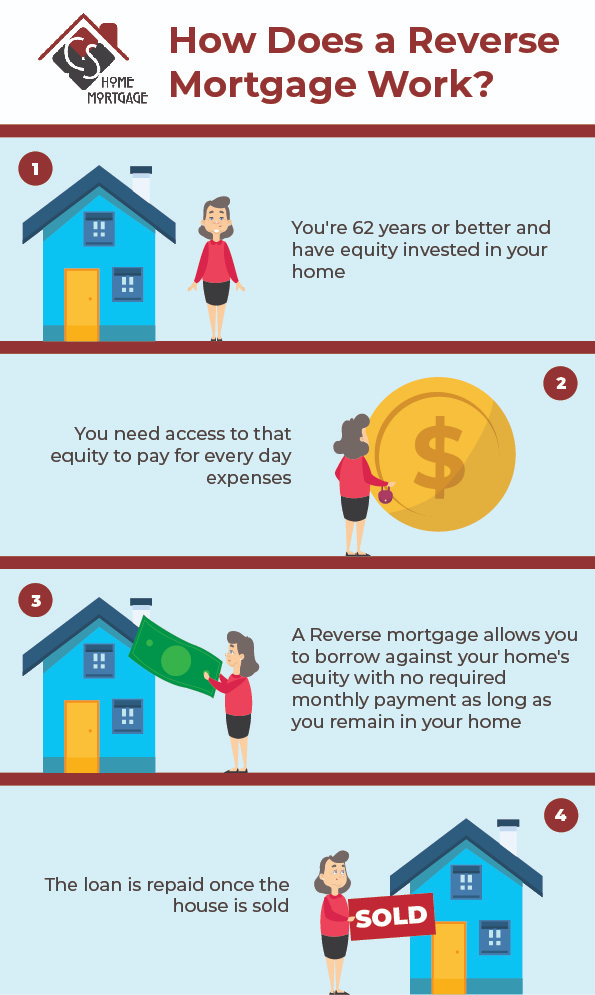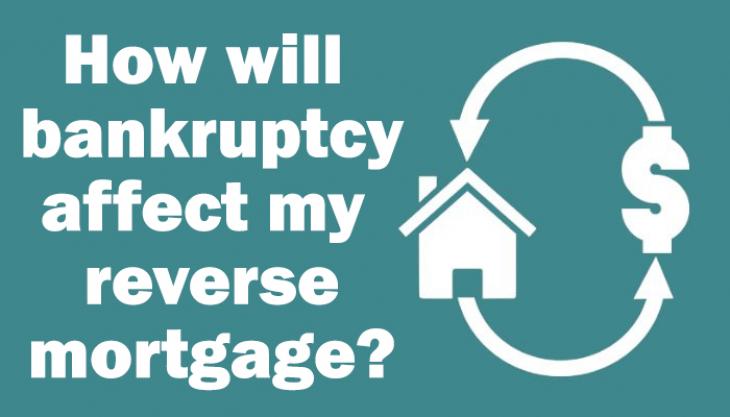The Process Involved When You Decide to Purchase Reverse Mortgage
The Process Involved When You Decide to Purchase Reverse Mortgage
Blog Article
Empower Your Retirement: The Smart Means to Acquisition a Reverse Mortgage
As retired life methods, numerous individuals seek efficient techniques to boost their financial independence and wellness. Among these strategies, a reverse home mortgage arises as a viable alternative for homeowners aged 62 and older, permitting them to take advantage of their home equity without the need of regular monthly repayments. While this financial device offers numerous advantages, consisting of boosted money circulation and the prospective to cover crucial expenses, it is critical to comprehend the complexities of the application process and crucial factors to consider involved. The next steps might reveal how you can make a well-informed decision that might significantly influence your retired life years.
Understanding Reverse Home Mortgages
Comprehending reverse home loans can be essential for property owners looking for economic versatility in retirement. A reverse home mortgage is a monetary product that allows qualified house owners, normally aged 62 and older, to transform a section of their home equity into cash. Unlike conventional home mortgages, where debtors make month-to-month payments to a loan provider, reverse home loans make it possible for house owners to receive payments or a lump amount while maintaining possession of their residential or commercial property.
The amount offered with a reverse mortgage relies on several variables, including the house owner's age, the home's value, and current rate of interest. Significantly, the lending does not have actually to be paid back until the homeowner sells the home, relocates out, or passes away.
It is essential for prospective borrowers to understand the implications of this financial product, consisting of the influence on estate inheritance, tax factors to consider, and continuous responsibilities associated to residential or commercial property upkeep, taxes, and insurance. Additionally, counseling sessions with certified experts are commonly called for to guarantee that debtors completely comprehend the terms of the lending. Overall, a thorough understanding of reverse mortgages can empower homeowners to make informed decisions regarding their economic future in retired life.
Benefits of a Reverse Home Mortgage
A reverse home loan provides numerous engaging benefits for eligible home owners, particularly those in retirement. This financial tool allows seniors to convert a part of their home equity right into money, offering important funds without the need for regular monthly mortgage settlements. The cash obtained can be used for different objectives, such as covering medical expenditures, making home renovations, or supplementing retired life earnings, thus improving overall monetary versatility.
One considerable advantage of a reverse home mortgage is that it does not require settlement up until the property owner vacates, offers the home, or dies - purchase reverse mortgage. This attribute enables retirees to keep their way of living and satisfy unforeseen expenses without the problem of month-to-month repayments. In addition, the funds obtained are typically tax-free, enabling homeowners to utilize their cash without anxiety of tax implications
Additionally, a reverse mortgage can provide assurance, knowing that it can function as an economic safety net throughout challenging times. Homeowners also retain ownership of their homes, guaranteeing they can proceed staying in a familiar atmosphere. Eventually, a reverse mortgage can be a tactical funds, equipping senior citizens to handle their finances efficiently while enjoying their gold years.
The Application Refine
Navigating the application process for a reverse home loan is a vital step for house owners considering this monetary choice. The very first phase entails evaluating qualification, which usually calls for the homeowner to be a minimum of 62 years of ages, very own the building outright or have a reduced home mortgage balance, and inhabit the home as their main home.
Once eligibility is validated, house owners should undertake a therapy session with a HUD-approved therapist. This session ensures that they totally comprehend the ramifications of a reverse home mortgage, consisting of the obligations included. purchase reverse mortgage. After completing counseling, candidates can proceed to gather required paperwork, consisting of proof of revenue, assets, and the home's value
The next step involves submitting an application to a lending institution, who will analyze the economic and home credentials. An appraisal of the home will certainly likewise be performed to establish its market value. If accepted, the lender will present finance terms, which ought to be evaluated meticulously.
Upon acceptance, the closing procedure adheres to, where last records are signed, and funds are disbursed. Understanding each stage of this application procedure can considerably enhance the home owner's self-confidence and decision-making relating to reverse home mortgages.

Secret Factors To Consider Prior To Acquiring
Purchasing a reverse home loan is a considerable financial decision that requires cautious factor to consider of several essential variables. Evaluating your economic needs and objectives is just as crucial; determine whether a reverse mortgage straightens with your lasting plans.

Additionally, evaluate the effect on your current lifestyle. A reverse mortgage can affect your qualification for specific government advantages, such as Medicaid. Ultimately, look for professional support. Consulting with a monetary consultant or a housing therapist can offer beneficial understandings tailored to your individual situations. By extensively examining these factors to consider, you can make a more informed decision concerning whether a reverse home loan is the right economic approach for your retired life.
Maximizing Your Funds
As soon as you have secured a reverse mortgage, properly handling the funds ends up being a top priority. The adaptability of a reverse home mortgage allows homeowners to use the funds in various means, yet critical planning is necessary to optimize their benefits.
One key technique is to develop a budget that details your regular monthly expenditures and economic great post to read objectives. By determining essential costs such as health care, property tax obligations, and home maintenance, you can allot funds accordingly to make certain long-term sustainability. Additionally, take into consideration utilizing a portion of the funds for financial investments that can produce earnings or value gradually, such as mutual funds or dividend-paying supplies.
One more vital element is to maintain a reserve. Reserving a get from your reverse home loan can help cover unforeseen costs, offering comfort and monetary security. Additionally, seek advice from a monetary advisor to check out feasible tax obligation implications and just how to integrate reverse mortgage funds into your general visit the website retired life approach.
Inevitably, prudent administration of reverse home mortgage funds can enhance your financial security, allowing you to appreciate your retired life years without the anxiety of monetary uncertainty. Cautious planning and notified decision-making will make sure that your funds work efficiently for you.
Verdict
Finally, a reverse mortgage offers a feasible financial method for senior citizens seeking to enhance their retired life experience. By transforming home equity into easily accessible funds, people can attend to essential expenditures and safe and secure additional economic resources without sustaining month-to-month payments. Mindful consideration of the associated terms and effects is essential to maximize advantages. Ultimately, leveraging this financial tool can assist in better freedom and boost total high quality of life during retired life years.
Recognizing reverse mortgages can be essential for house owners looking for financial flexibility in retired life. A reverse home mortgage is an economic item that enables qualified home owners, generally aged 62 and older, to convert a part of their home equity into cash money. Unlike traditional home loans, where debtors make month-to-month repayments to a lender, reverse home loans enable house owners to obtain payments or a swelling sum while keeping possession of their property.
Generally, a thorough understanding of reverse mortgages can encourage home owners to make enlightened decisions regarding their monetary future in retired life.
Seek advice from with an economic expert to discover possible tax obligation implications and how to incorporate reverse home loan funds pop over to this web-site into your general retired life approach.
Report this page